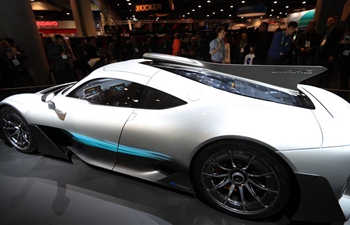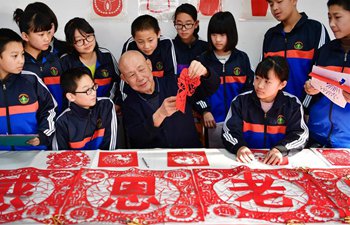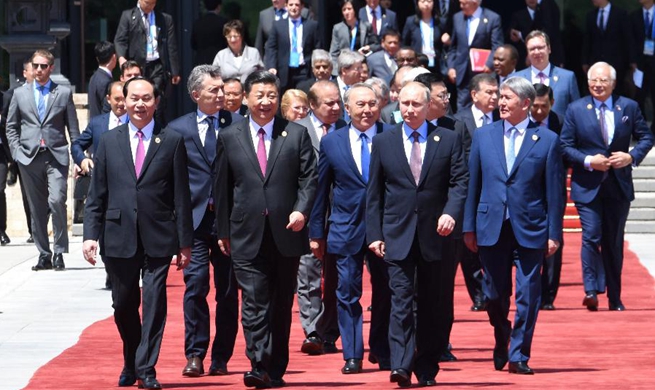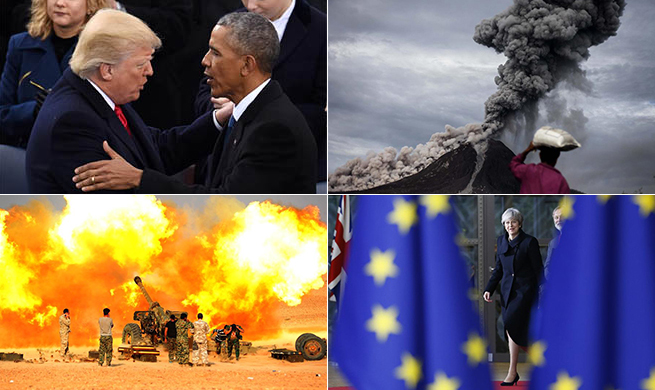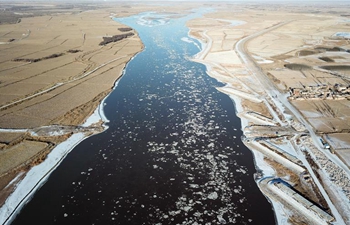LONDON, Jan. 11 (Xinhua) -- Suspicion about China's development in the modern world is probably related to a sense of the declining fortunes of the West, a British professor said Thursday.
Dr. Jonathan Sullivan, associate professor and director of China Policy Institute at the University of Nottingham, said that "the balance of power is changing," which is unsettling for the West since it has been used to setting rules and having its own way.
Sullivan told Xinhua in an interview on a number of issues relating to China and its relationship with the West.
When dealing with Western countries, China emphasizes "win-win cooperation." Sullivan says these motives are highly suspected by the West.
The West regards China's behavior like building infrastructure in Africa or establishing Confucius Institutes as a move to build strategic influence and leverage.
He believed that this is unfortunate, and probably related to the sense of the West's own declining fortunes.
"The unsettling feeling, that China's development is a big threat to the West's interests, is multiplied by the clash of values that many westerners perceive between the openness of democratic political systems and China's 'repressive regime'," said Sullivan.
He added that this belief sometimes is based on their ignorance and prejudice.
"The perceived lack of freedoms in China is magnified, so that every rights lawyer or jailed protester takes on a monumental significance, seemingly confirming biases that westerners have long been primed to believe about China," said Sullivan.
He further explained that in these circumstances it is very difficult for China's positive development experience to make headway against these entrenched beliefs.
"The fact that western systems have also produced devastating inequalities, institutionalized racism, and frequent destabilizing interventions in other countries is conveniently forgotten," Sullivan noted.
In a word, he said that most westerners do not believe in China's win-win rhetoric. Instead they believe China is pursuing its own interests, "which are incompatible and iniquitous to their own."
What's more, to build a common destiny for humankind, China stresses that it will adhere to peaceful development, while countries in the west believe in "strong-power hegemony."
Sullivan told Xinhua he thought the two sides can bridge their differences.
"I think the bridging can take place in future, but not now because of the flux and uncertainties in the West," he said, adding that the obstacles include not only the chaotic Trump administration but also the rise of the far right and socio-political instability.
Sullivan says Trump is a major danger because of his volatility. "While on the other hand, he is easily manipulated," he said.
"But more generally, western societies have not come to terms with the recalibration of the world order, one in which China will play a much more prominent role," Sullivan added.
He believed that it will take time for entrenched views about the "natural world order" to go along with the new reality.
Sullivan said the success of the Belt and Road Initiative, the potential leadership role China plays in climate action and China's contribution of global public goods will help to establish China's credentials.
"But the things China does that play into western ideas will continue to be magnified, such as the South China Sea or Taiwan issue, which China regards as pursuing its own national security," he added.
Sullivan concluded that though these are difficult obstacles, ultimately there are enough issues of common interest, particularly around global issues like climate change, economic development and terrorism, that will bind countries together in a more constructive way.




